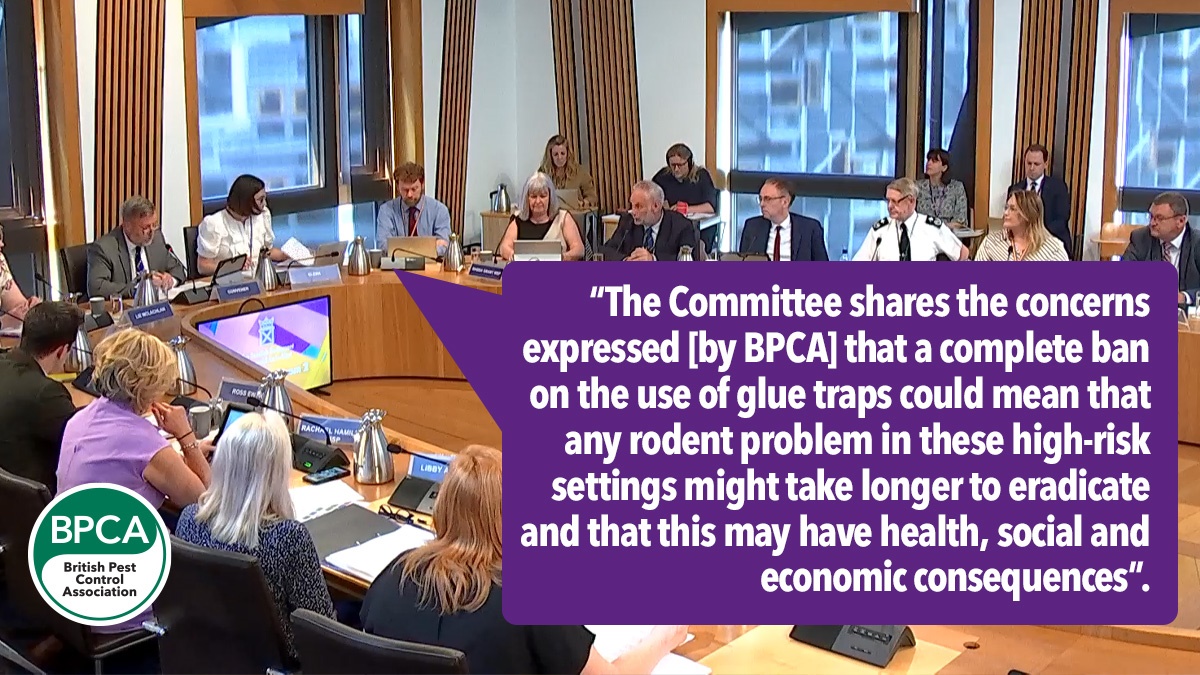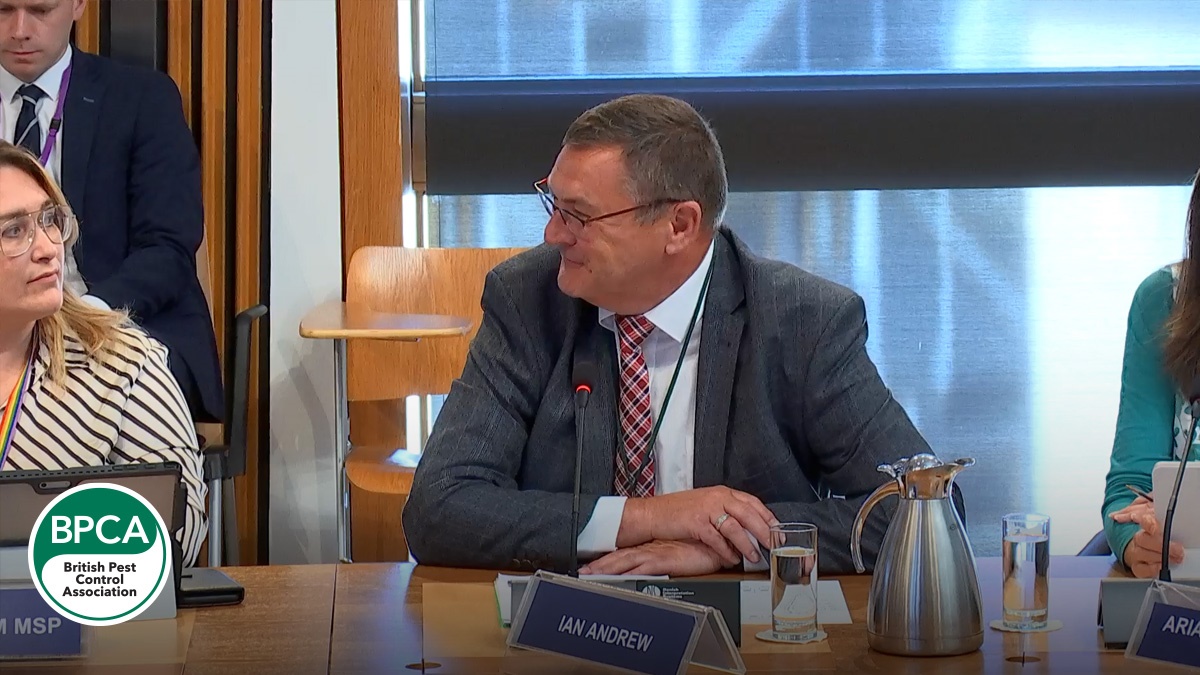LEGISLATION AND LOBBYING
BPCA has successfully lobbied for further scrutiny of the proposed glue board ban in Scotland.

The Wildlife Management and Muirburn (Scotland) Bill, first published in April 2023, includes legislation banning the use, sale and purchase of glue boards for rodent management.
The Rural Affairs and Islands Committee, which is reviewing the Bill, has called for clarity on how the ban on glue boards would work in practice, given the lack of alternative measures in place for quick capture on high-risk sites.
BPCA's main concern during this process has been the evidence given by the Scottish Animal Welfare Commission (SAWC).
While acknowledging that there are no current alternatives, the SAWC has repeatedly voiced the opinion that there could be better solutions for animal welfare on the horizon. However, they have been unable to suggest what these may be.
Ian Andrew, BPCA Chief Executive, commented:
"It’s been a tough battle to be heard, but today feels like we’ve made significant progress.
“We’ve been loud and clear: there are no alternative tools for high-risk sites where immediacy is critical.
“While we understand and sympathise with animal welfare concerns, our main priority has to be protecting public health”.

Ian continued:
“When rodents start coming into our homes and other spaces, the diseases they bring become a danger to us.
"A complete ban on rodent glue boards in Scotland would have a devastating impact on human health and safety.
“Everything from hospital wards to school dining rooms will be liable to close while extended pest management programmes occur."
Licences for professionals
As was the case with England and Wales, BPCA is lobbying for a licensing scheme in Scotland that will allow pest professionals to continue using glue boards.
While Wales decided to implement a complete ban, the lobbying was successful in England, and a licensing scheme is being drawn up for implementation next year.
The SAWC believes that if a licensing scheme is introduced for professionals in Scotland, it should be a temporary measure for three years, which they think is sufficient time for other "humane methods of rodent control" to be developed.
And the Minister for Energy and the Environment told the Committee that “the main reason why we ruled out a licensing scheme is that there is no regulatory framework in place for pest controllers”.
The Minister explained that, without an accredited body for the profession, it would be impossible to ensure that glue traps were only sold to professionals rather than members of the public.
The Scottish Government inferred that a licensing scheme would not be workable, however BPCA challenged this conclusion, referring to the current licensing scheme administered by NatureScot for gull management.
As a result, the Committee has also requested more information from the Government on why a licensing scheme would not be workable.
The Committee's conclusion
The proposed ban will continue to go ahead for members of the public, however the Committee is proposing to delay the decision on professional use pending more information on alternative quick capture methods available for high-risk situations.
The report states:
The Committee shares the concerns expressed to it [by BPCA] that a complete ban on the use of glue traps could, therefore, mean that any rodent problem in these high-risk settings might take longer to eradicate and that this may have health, social and economic consequences. As a result, the Committee believes it is less clear whether there is sufficient evidence to introduce a complete ban on glue traps, especially for these settings where there is a high-risk to public health.
Ian continued, "Without glue boards, rodent management programmes will take longer in crucial areas.
"Typically, a rodent glue board treatment will be successful in a few days. Alternative solutions like snap traps and poisons will take roughly two weeks.
"Hospitals, care homes, food factories, schools, and critical infrastructure will all be affected if we fail to protect these tools for professional use."
He concluded:
"BPCA supports banning these tools for untrained members of the public. However, pest professionals need glue boards as that last line of defence against the disease, destruction, and death rats and mice can cause.
"We're pleased that the Committee shares our concerns regarding a complete ban and hope they conclude that a professional licensing scheme would better protect Scottish citizens' health.
“We’ll continue to fight for our sector’s toolkit, so in turn, our members can continue to protect their clients”.
LOBBYING FOR THE SECTOR
BPCA is a registered lobbying organisation that works on behalf of the pest management sector and has actively influenced legislation and policy.
Learn more

Source: Online